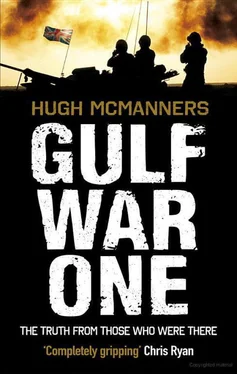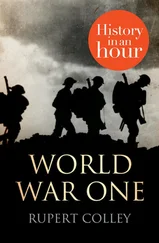But fighting a war in the Middle East was the last thing any British or American defence secretary or military commander was expecting in 1990. Throughout the 1980s the NATO member countries had continued to fund expensive air and armoured land forces aimed at countering the perceived Cold War threat of Soviet Union expansion westwards. At the turn of the decade, the decline and dissolution of the USSR led to NATO governments cutting defence spending, and thus also reducing the military capability of their armed forces.
The American military was still haunted by the loss and humiliation of its defeat in Vietnam, while Britain was governed by a prime minister who had led her nation to remarkable and resounding victory eight thousand miles from home in the Falkland Islands.
However, despite Prime Minister Margaret Thatcher’s enthusiastic war leadership, Britain’s armed forces were a very long way from combat readiness. After four decades of increasingly unrealistic pretence of being ready to fight off the hordes of the equally notional Soviet Third Shock Army, British forces in Germany were too narrowly focused on a battle with the Soviets that nobody expected to actually fight, what General Rupert Smith called ‘the ritual dance of deterrence’, and under-equipped for actual fighting. The Thatcher government was deeply unpopular, and was in the process of claiming back military savings in the so-called ‘peace dividend’ after the collapse of the Soviet Union, by severely axing the defence budget.
The British Gulf effort was codenamed ‘Operation Granby’ – as part of the more descriptively named US ‘Operation Desert Shield’. Within a week, the Royal Navy sent ships, and the RAF Torndao F3 fighters, and Jaguar ground attack aircraft, followed by Tornado GR1 to defend Bahrain.
Hashim Ali
Iraq freedom fighter
Saddam Hussein had made many threatening speeches against our neighbouring countries for not supporting him in the war against Iran. His speeches, and the line of the Iraq government, was that they’d fought for eight years against Iran on behalf of all Arabs, losing many men and much equipment, and that all the money was lent by Kuwait for this purpose. Saddam Hussein said the Arabs should be supporting Iraq and giving them this money, rather than demanding the paying back of this huge and odious debt.
There is much background to the invasion of Kuwait, and an accumulation of grievances. In the early 1970s, when the British Army withdrew from the Gulf and the Emirates emerged, the Shah of Iran decided this was the right moment to capture three islands in the centre of the Gulf – Abu Musa and the Greater and Lesser Tunbs. I’m sure Britain was aware of these tensions.
In 1975, Saddam Hussein signed a humiliating agreement with the Shah of Iran, in which he conceded sovereignty to half of Shatt al-Arab – Iraq’s big river – so that the Shah would withdraw support from the Kurdish movement in the north of Iraq. The price of the collapse of the Kurdish movement in the north was paid for by the loss of water and land in the south.
At that time, we considered Iran to be weak. But we ourselves had no real government, only a few people led by Saddam. Having just one person at the top of the pyramid was a great weakness for Iraq. This person decides everything, without consulting even his closest advisers.
I was a freedom fighter, but I was not fighting against Iraq. I’m not Kurdish, but Arab. My group thought we could fight the Iraq regime to make it collapse from within. The majority of opposition to the Saddam regime were Kurdish parties, forces and militias. But there were also many Iraqi parties, several communist, democratic parties and Arab nationalists – a broad spectrum of opposition against the regime and its claims that there was no other party in Iraq apart from its own Ba’ath party.
Theirs was a stupid attitude – that there was no other leader than Saddam, all said in the same way as there is no other god but God! – a typical totalitarian system.
Our freedom group was a proof that Iraqi people were not all clapping and applauding the regime, as it claimed we were. We wanted people to know that there was a diversity of opinion inside Iraq. But unfortunately, at that time, the Arab intelligentsia, and the majority of Arab countries, sided with the Saddam regime.
The Rt Hon Tom King
UK Secretary of State for Defence
When I became Secretary of State for Defence in 1989, the world was changing under President Gorbachev, but our entire focus was still on the Warsaw Pact. In November the Berlin Wall came down, and things began to change very rapidly. The Soviet Union had been held together by military cooperation and Soviet Union-wide conscription, so we watched with great interest as that started to crumble. Lithuania went first, with young draft dodgers in Vilnius no longer prepared to serve in the brutal Soviet army which was deployed in Afghanistan, and the Lithuanian government no longer prepared to force them. Next was Latvia and the rest of the Baltic states, and that was the start of the break-up of the Soviet Union.
Hashim Ali
Iraq freedom fighter
I’d been an activist since 17 July 1968, after the Ba’ath party coup d’état . After finishing university, we were taken into the military service, people with Ba’athist inclinations as officers – the others made to be the ordinary soldiers, with the most ridiculous basic training in marching and to shoot a rifle. After nearly two years of this, I was sent to work in the central command, a large camp forty kilometres from Baghdad called Al Haji, with rockets, chemicals and lots of other regiments.
It had become very dangerous by this time. Anyone with any political background other than the Ba’ath party was liable to be executed. A few of my good friends from university were Ba’athis. They weren’t allowed to say anything, but I sensed they were not happy about this. A lot had brothers, relatives and friends in the Ba’ath party, and had learned bits of the secrets of what was going on in the Party’s closed rooms; mainly in-fighting, which was scandalous and horrific. There were many sexual and other scandals within the Party and the government, with people being punished in a military way. They punished their own members as well, imposing totalitarian, military rules.
I was approached many times to join the Ba’ath Party, but said I wasn’t interested in politics. I had to sign documents to say I wasn’t a member of any other parties. I was under huge pressure, with my closest friends being arrested and detained. We heard about what was happening to people detained in the ‘boxes’ as we called the detention centres, located throughout Baghdad. You never knew where they were – maybe in your neighbours’ house, or in the next road. Then my brother was missing for two weeks, and we couldn’t find him anywhere. When he was released, he was a broken man.
What he’d been through was horrible. He said some people came to the laboratory where he worked, he was blindfolded and driven round and round so he didn’t know where he was, until they led him into a house. There he said he could hear the screaming of girls and women – he didn’t know if this was recordings or torture. He went through an interrogation procedure which ended with a rod being put up inside him, into his seat, then static electricity discharge being put into that rod. The usual joke of the security forces was to threaten to make you do something ‘Or we make you sit on a bottle’. My brother said he felt that he was dying and his body exploding, and he was forced to sign something.
Читать дальше












